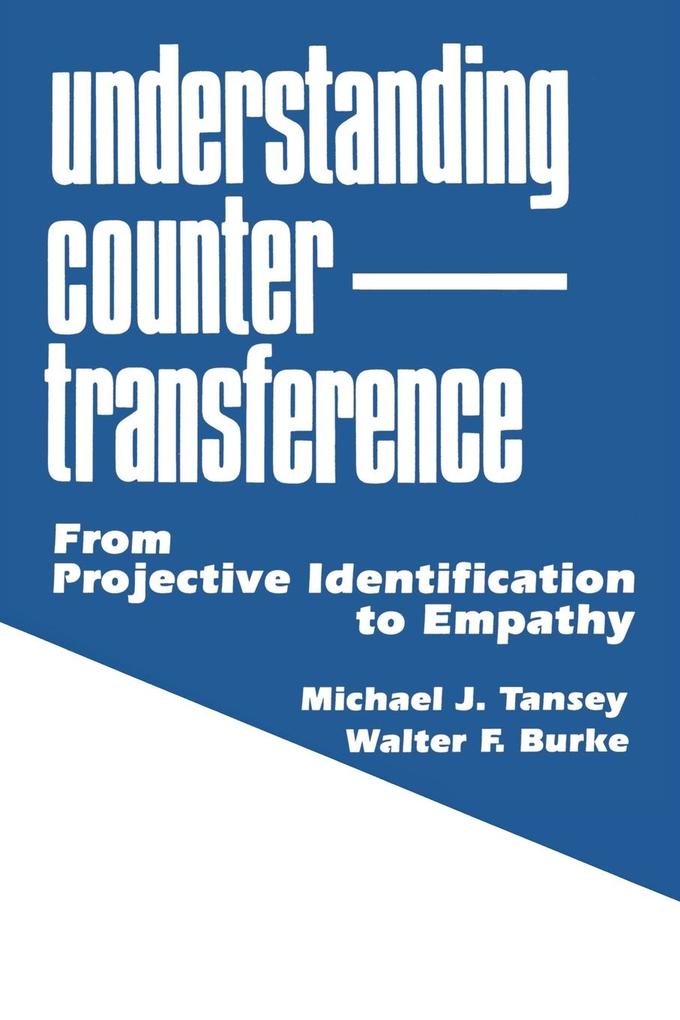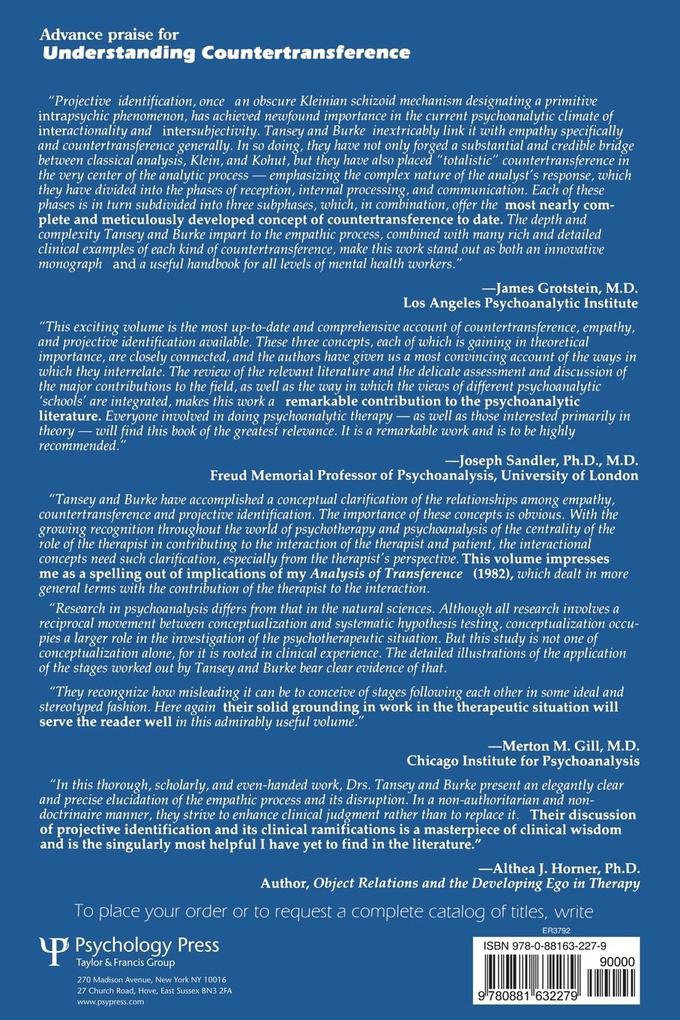Seeking to mediate between the "classical" view of countertransference as a neurotic impediment to the treatment process and the more recent "totalist" perspective, which assumes that the therapist's emotional response necessarily reveals something about the patient, Tansey and Burke stake out a thoughtful middle ground. They submit that the therapist's utilization of adequately processed countertransference reactions is in fact integral to treatment success, while arguing against the totalist assumption that the therapist's emotional to the patient must be revelatory in a direct and immediate way.
Inhaltsverzeichnis
Introduction. Countertransference, Empathy, and Projective Identification: An Historical Perspective. Discussion of Terms. The Unitary Sequence for Processing Interactional Communications: An Introduction. The Reception Phase. Internal Processing. The Communication Phase. Validation. Countertransference Disclosure. Clinical Illustrations. Closing Comments.











